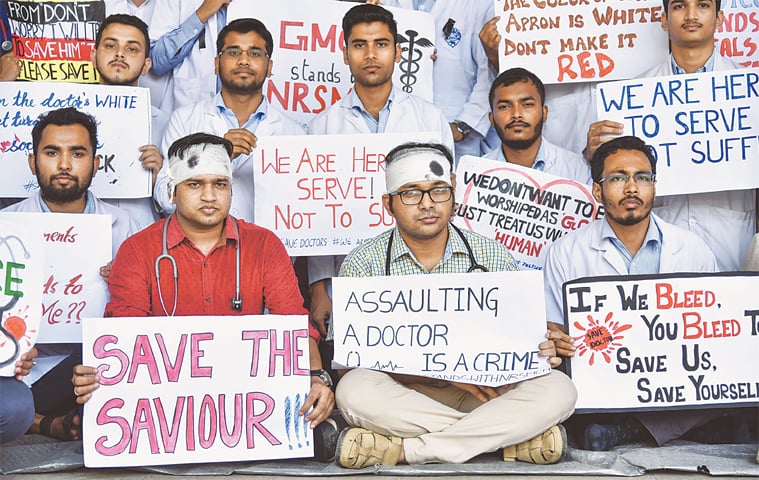
NEW DELHI: Tens of thousands of Indian doctors observed strike on Monday calling for more protection against violence by patients and their families, as parliament met for the first time since national elections.
The nationwide strike, which will last until Tuesday morning, is in solidarity with doctors in the eastern state of West Bengal after three were viciously attacked by the relatives of a man who died.
The Indian Medical Association (IMA), representing 350,000 of India’s 900,000 doctors, called for tougher punishments for those assaulting medical staff.
Blaming the attacks in part on “high expectations” by patients, poor infrastructure and inadequate staffing, the IMA said hospitals should have more security cameras and that the entry of visitors to hospitals should be restricted. The strike, which does not include emergency services, takes place as parliament convened for the first time since Prime Minister Narendra Modi was re-elected in a landslide last month.
Doctors in West Bengal’s capital Kolkata have been on strike since last Monday, when a family assaulted three doctors after a relative died during treatment at a state-run hospital. The family, who blamed the death on negligence by the doctors, lashed out violently and left two of the medical staff critically injured.
The strike in West Bengal, which has also been wracked by weeks of political violence with almost 20 people killed, has crippled medical services for the state’s 90 million people.
On Monday doctors in the state were due to discuss the strike with Mamata Banerjee, the state premier and fierce Modi opponent.
Published in Dawn, June 18th, 2019













































